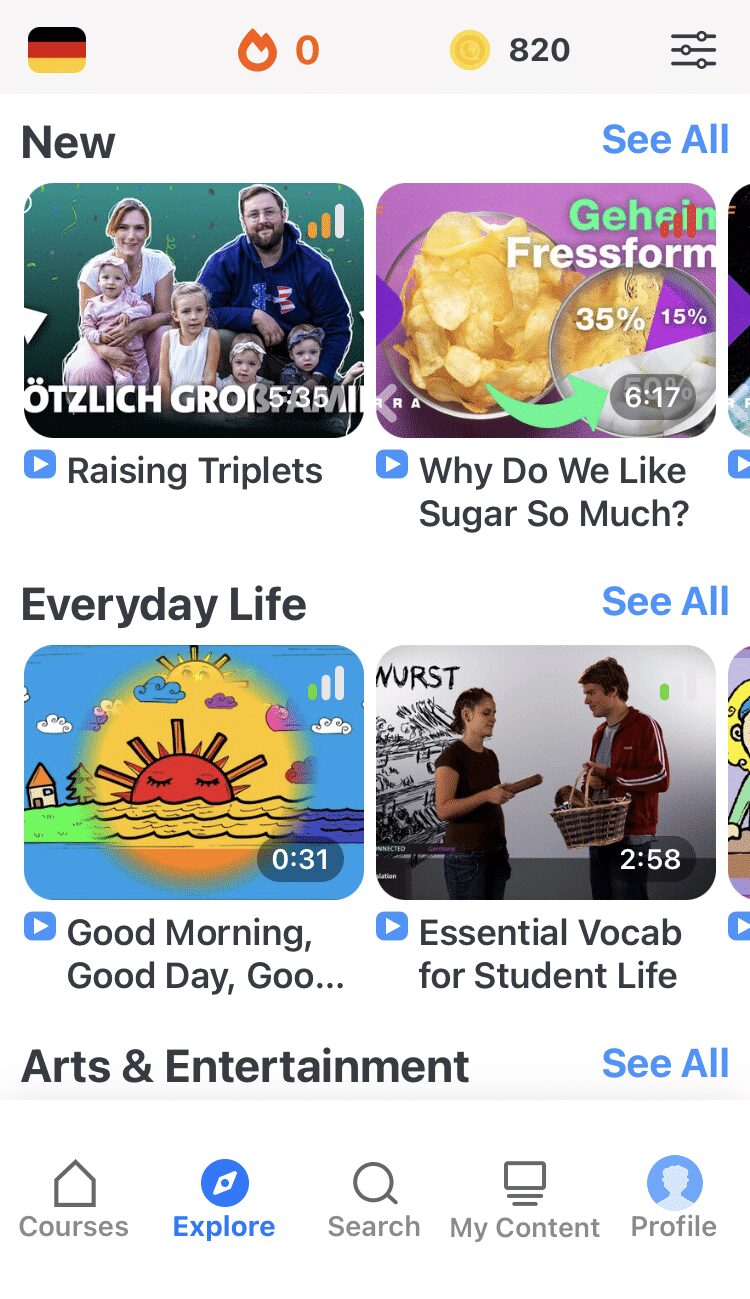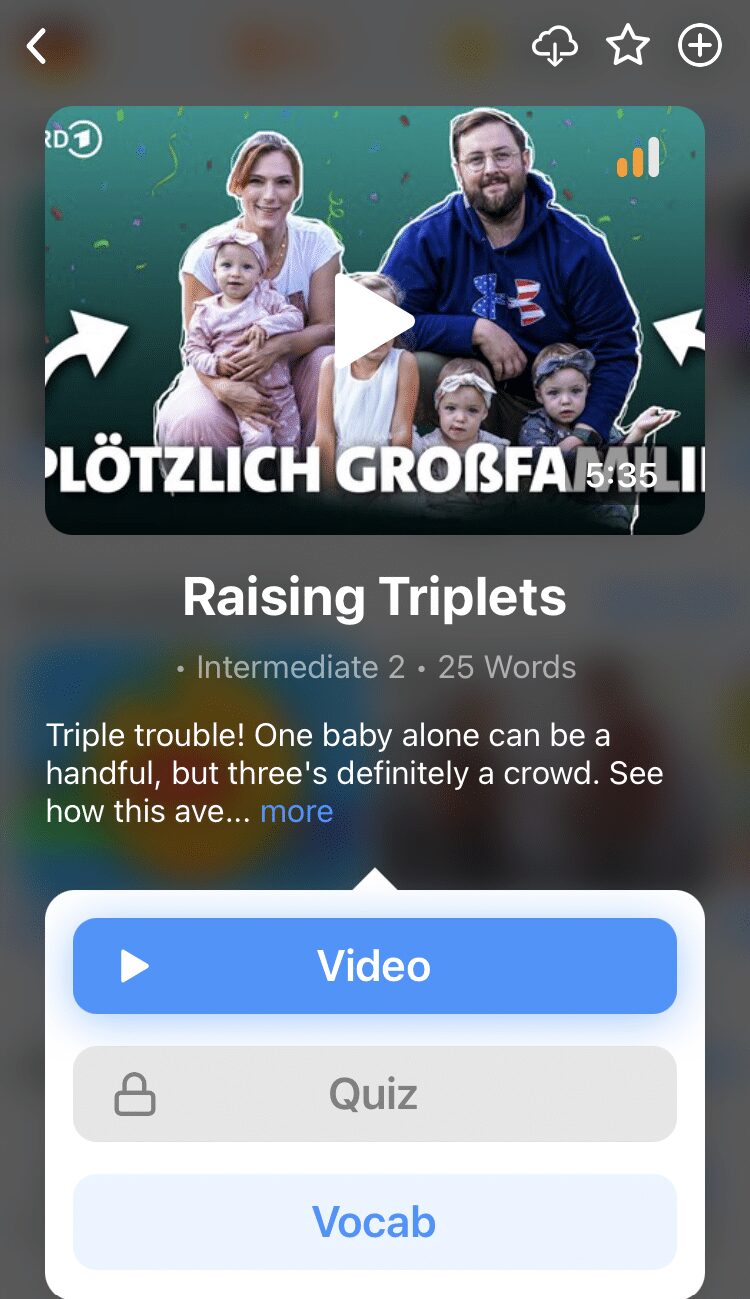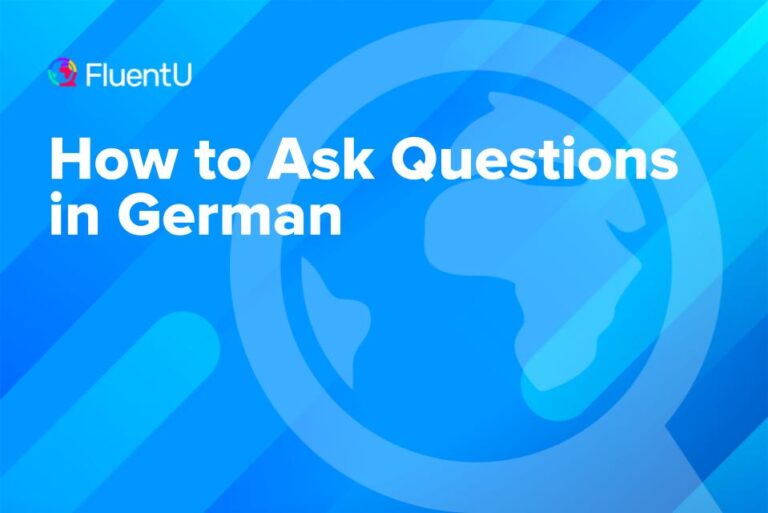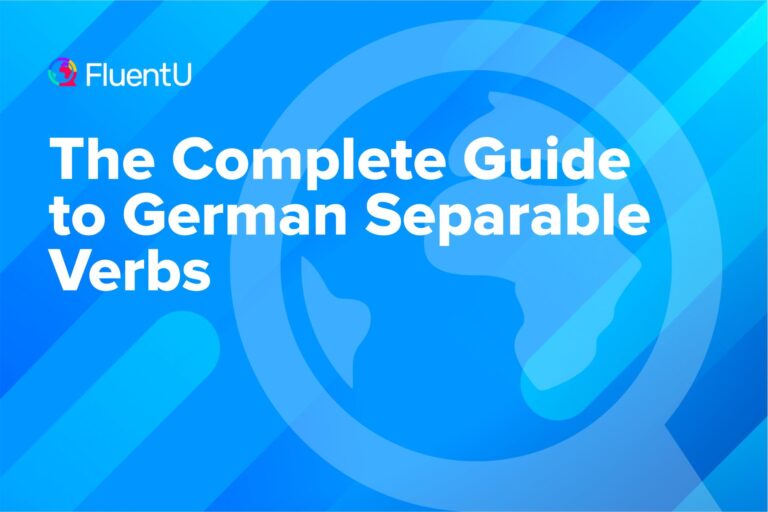Contents
- When to Use the 3 Common Auxiliary Verbs
- How to Conjugate the 3 Common Auxiliary Verbs
- When Do You Use the 6 Modal Auxiliary Verbs?
- How to Conjugate the 6 Modal Auxiliary Verbs
- Refining Your Understanding of Auxiliary Verb Usage with the 3 Ps
- The Best Ways to Practice German Auxiliary Verbs
- And One More Thing...
The Guide to German Auxiliary Verbs
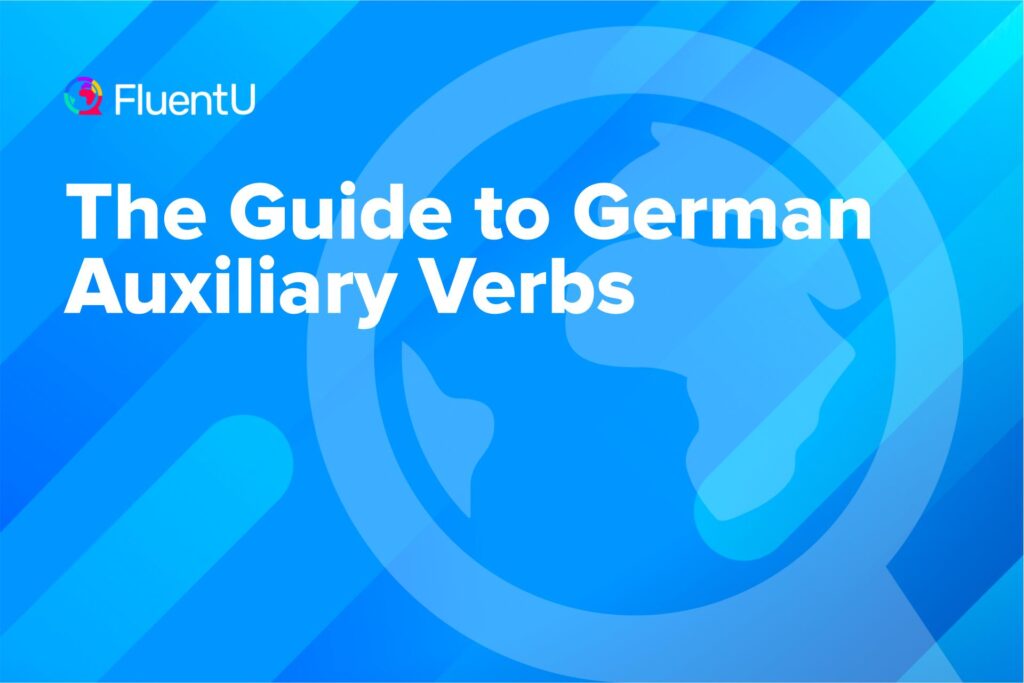
There are many types of German verbs. Auxiliary verbs are an important part of speech in both German and English.
The three main German auxiliary verbs are sein (to be), haben (to have) and werden (to become). These verbs are sort of “helping verbs” that can help to provide the mood or the context of a certain sentence.
It’s really important to know which of these verbs to use, because if you use the wrong one, it can cause a lot of confusion. So let’s dive in and learn how to use them correctly.
Download: This blog post is available as a convenient and portable PDF that you can take anywhere. Click here to get a copy. (Download)
When to Use the 3 Common Auxiliary Verbs
The German verbs sein, haben and werden are used practically all the time.
They’re used when talking about identity and state of being, and are even used as helping verbs when speaking in the past tense. For the purpose of this post, we’ll refer to them as the “common auxiliary verbs.”
Here are a few examples:
Ich habe Hunger. — I have hunger/I’m hungry.
Er ist Lehrer. — He is a teacher.
Ich bin im Bett geblieben. — I stayed in bed.
The forms of sein and haben are more frequently used, but werden finds its way into everyday conversation as well:
Ich werde alt. — I am getting old.
Werden has many other different uses and cases, but for the sake of this article, I’ll just refer to its simple present tense.
You can already tell how important it is to get even these three verbs right. Otherwise, you’re in for a world of confusion.
How to Conjugate the 3 Common Auxiliary Verbs
The above three auxiliary verbs are all irregular.
What makes a verb regular or irregular is probably a bit out of the scope of what we’re talking about right now, but for our purposes, it means that there may not be an intuitive pattern to follow as you conjugate them. You kind of just have to memorize and practice the different forms. Sorry!
In my experience, it’s usually best to first look at a chart of all the different conjugations for each tense of a new verb you learn, especially if it’s irregular.
So go ahead and check out the charts below for each of the auxiliary verbs in das Präsens (simple present) and in das Präteritum (simple past). Make sure to copy them down yourself!
Conjugations of Common Auxiliaries in das Präsens
| sein | haben | werden | |
|---|---|---|---|
| ich | bin | habe | werde |
| du | bist | hast | wirst |
| er/sie/es | ist | hat | wird |
| Sie | sind | haben | werden |
| wir | sind | haben | werden |
| ihr | seid | habt | werdet |
Conjugations of Common Auxiliaries in das Präteritum
| waren | hatten | wurde | |
|---|---|---|---|
| ich | war | hatte | wurde |
| du | warst | hattest | wurdest |
| er/sie/es | war | hatte | wurde |
| Sie | waren | hatten | wurden |
| wir | waren | hatten | wurden |
| ihr | wart | hattet | wurdet |
As you can see, haben and werden are a little bit easier to handle than sein.
Unfortunately, sein is one of the weirdest verbs to conjugate, and it’s one of the most used verbs in the language, which is why you see a lot of it as a beginner German speaker. But you’ll get used to it pretty quick!
When Do You Use the 6 Modal Auxiliary Verbs?
Along with the three auxiliary verbs, German has what’s called die Modalverben (the modal verbs), which are the equivalent to what we call the modal auxiliaries in English.
These six verbs are helping verbs that are typically accompanied by a second verb in order to create additional personal context for a sentence.
Always remember that when using a model verb, the modal verb is the second element in the sentence while the second verb comes directly at the end of the sentence.
For example:
Ich möchte nach Deutschland reisen. — I would like to travel to Germany.
The verbs that make up die Modalverben are as follows:
- können — can/to be able to
- müssen — must/to have to
- dürfen — to be allowed
- wollen — to want
- sollen — should/supposed to
- mögen — to like
Mögen’s subjunctive case, möchten (would like to), is also a very commonly used word in the German language and is treated exactly like a modal verb, but isn’t usually included in the six as an example.
How to Conjugate the 6 Modal Auxiliary Verbs
Conjugating the modal verbs can be a little tricky, but not quite as tricky as that pesky sein!
Modal verbs, just like the three auxiliary verbs, are irregular. So let me just get to it and give you the chart for the conjugations in das Präsens (simple present) and in das Präteritum (simple past).
Conjugations of Modal Verbs in das Präsens
| können | müssen | dürfen | |
|---|---|---|---|
| ich | kann | muss | darf |
| du | kannst | musst | darfst |
| er/sie/es | kann | muss | darf |
| Sie | können | müssen | dürfen |
| wir | können | müssen | dürfen |
| ihr | könnt | müsst | dürft |
| wollen | sollen | mögen | |
|---|---|---|---|
| ich | will | soll | mag |
| du | willst | sollst | magst |
| er/sie/es | will | soll | mag |
| Sie | wollen | sollen | mögen |
| wir | wollen | sollen | mögen |
| ihr | wollt | sollt | mögt |
Conjugations of Modal Verbs in das Präteritum
| konnten | mussten | durften | |
|---|---|---|---|
| ich | konnte | musste | durfte |
| du | konntest | musstest | durftest |
| er/sie/es | konnte | musste | durfte |
| Sie | konnten | mussten | durften |
| wir | konnnten | mussten | durften |
| ihr | konntet | musstet | durftet |
| wollten | sollten | mochten | |
|---|---|---|---|
| ich | wollte | sollte | mochte |
| du | wolltest | solltest | mochtest |
| er/sie/es | wollte | sollte | mochte |
| Sie | wollten | sollten | mochten |
| wir | wollten | sollten | mochten |
| ihr | wolltet | solltet | mochtet |
Once you’ve learned the rules for conjugation, you can get a better grasp of modal verbs by looking at plenty of examples. For example, the videos on FluentU show you how native speakers use them conversationally, across different forms.
FluentU takes authentic videos—like music videos, movie trailers, news and inspiring talks—and turns them into personalized language learning lessons.
You can try FluentU for free for 2 weeks. Check out the website or download the iOS app or Android app.
P.S. Click here to take advantage of our current sale! (Expires at the end of this month.)
Refining Your Understanding of Auxiliary Verb Usage with the 3 Ps
A good way to look at how auxiliary verbs and modal verbs are used is to understand the 3 Ps: possibility, probability and permission.
Chances are that when you run into a case having to do with one of the three Ps, you’re going to have to use a form of the auxiliary and modal verbs. These verbs provide the specific context of the sentence related to possibility, probability or permission.
The verb können, for example, is used when talking about possibility. If you said, the following sentence, you would literally be acknowledging that it’s possible for you to meet with whomever you’re speaking with today:
Ich kann heute mit dir treffen. — I can meet with you today.
The verb werden is a good example of probability. Here you’re referring to the probability of getting stronger (as long as you keep working out!):
Ich werde stark. — I’m getting strong.
Dürfen is the verb used is when talking about permission. Here you’re explaining that you’re allowed to go to the movies:
Ich darf heute ins Kino gehen. — I’m allowed to go to the movies today.
The Best Ways to Practice German Auxiliary Verbs
Practice makes perfect, and that’s especially true when learning these German verbs. Here are a few of the things that I did while learning the auxiliary verbs and modal verbs during my first year of learning German.
Make Plans with a Fellow German Learner
A fellow German learner doesn’t necessarily have to be someone in your class, but try to make verbal plans with someone at the same speaking level as you.
Set up a coffee date, study session or even a party while speaking German! Doing this will force you to use some of the modal verbs:
Was möchtest du heute machen? — What would you like to do today?
Ich will einen Film sehen! — I want to see a movie!
Super! Ich kann um 6 Uhr mit dir treffen. — Super! I can meet with you at 6 o’clock.
And so on. My friends and I still have conversations like these just because it’s fun to say as much as you can auf Deutsch.
Write Out Your Own Conjugation Charts
I always say that you should write out your own conjugation charts when learning any new verb, but this is super important when you’re learning the auxiliary and modal verbs.
I’d suggest copying down the charts included above in this article (yes, that includes the past tense ones, too) so that you physically get the information in your brain.
Keep a Daily Journal in German
I just started doing this myself and it’s amazing!
Keeping a daily planner or journal in German forces you to use a lot of those modal verbs. Try to write out your plans for the day in complete sentences to get better practice:
Heute muss ich Deutsch lernen. — Today I must study German.
Another great thing to include in your journal is how you’re feeling that day, or some positive reinforcement to help you accomplish your daily goals.
So there you have it! Make sure you remember when to use the German auxiliary verbs and how to conjugate them correctly. And then you’ll be one step closer to speaking German with confidence.
Download: This blog post is available as a convenient and portable PDF that you can take anywhere. Click here to get a copy. (Download)
And One More Thing...
Want to know the key to learning German effectively?
It's using the right content and tools, like FluentU has to offer! Browse hundreds of videos, take endless quizzes and master the German language faster than you've ever imagine!
Watching a fun video, but having trouble understanding it? FluentU brings native videos within reach with interactive subtitles.
You can tap on any word to look it up instantly. Every definition has examples that have been written to help you understand how the word is used. If you see an interesting word you don't know, you can add it to a vocabulary list.
And FluentU isn't just for watching videos. It's a complete platform for learning. It's designed to effectively teach you all the vocabulary from any video. Swipe left or right to see more examples of the word you're on.
The best part is that FluentU keeps track of the vocabulary that you're learning, and gives you extra practice with difficult words. It'll even remind you when it’s time to review what you’ve learned.
Start using the FluentU website on your computer or tablet or, better yet, download the FluentU app from the iTunes or Google Play store. Click here to take advantage of our current sale! (Expires at the end of this month.)

